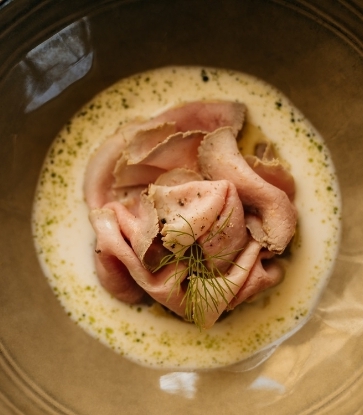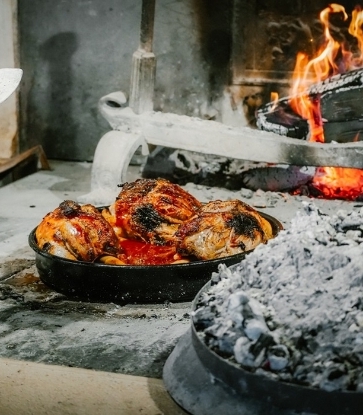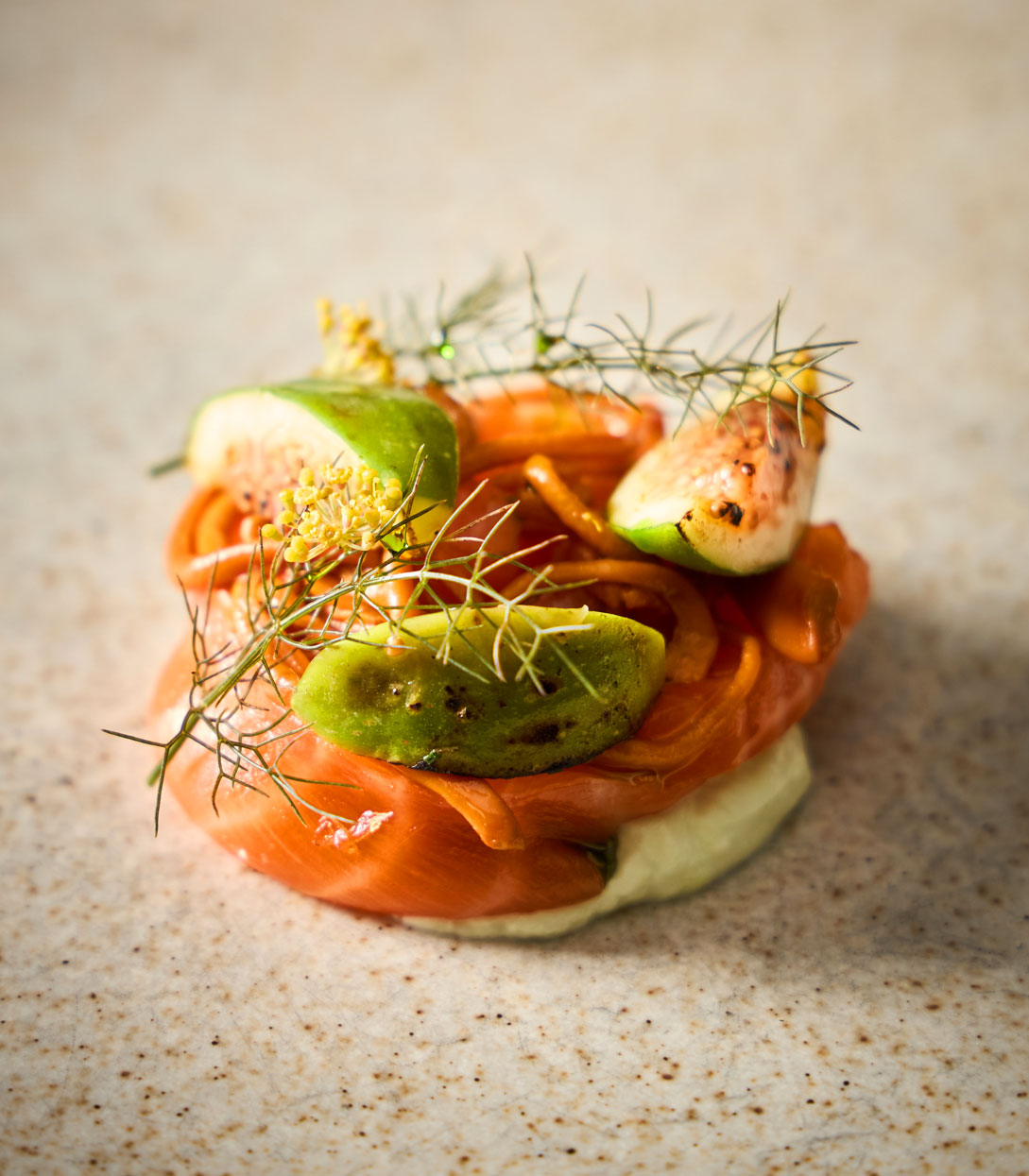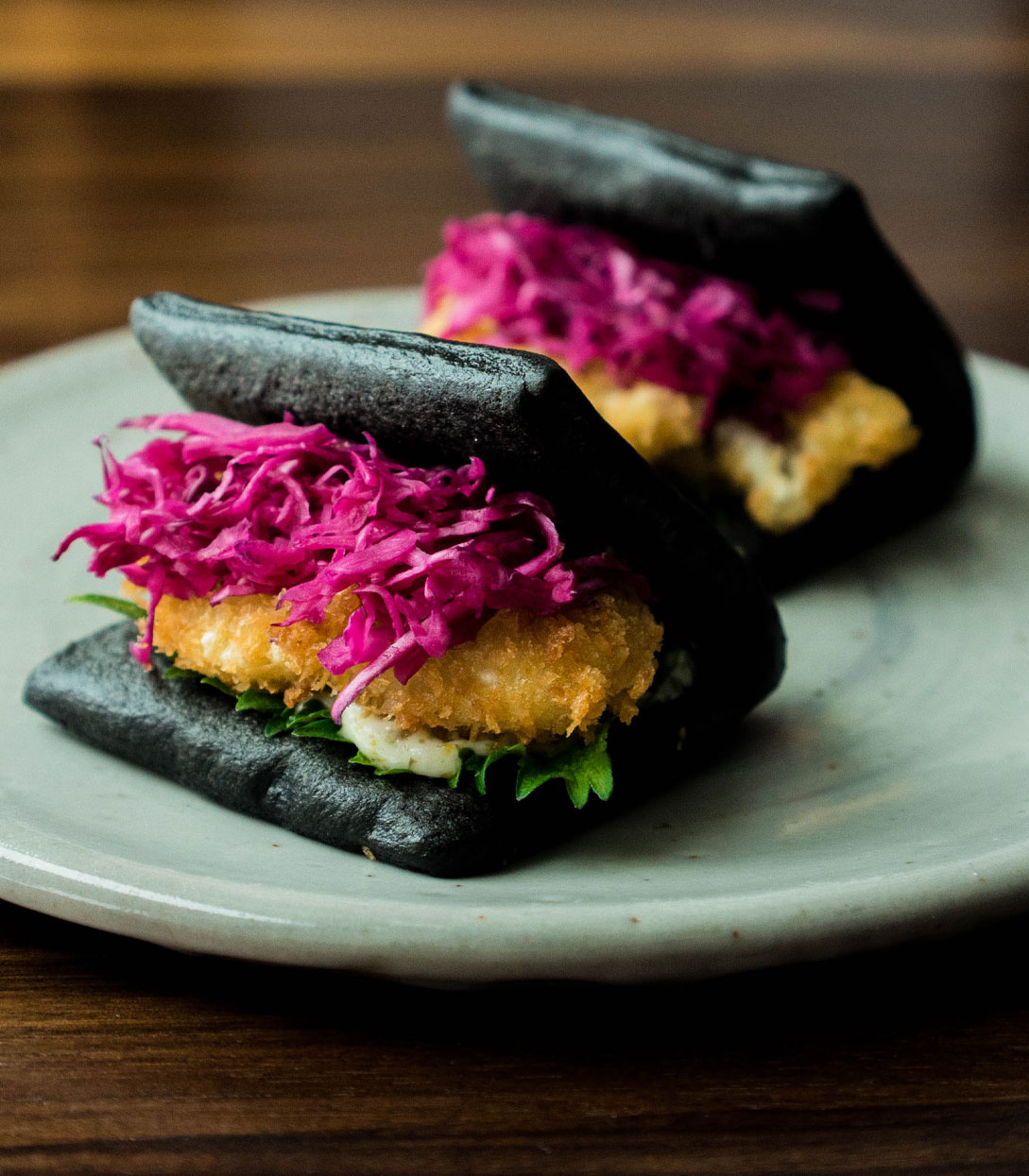On 6th June 2024, at the Clermont-Ferrand auction house, all eyes were on Lot 1: a vintage red MICHELIN Guide, dated 1939. Next to it was a second copy, bearing the same date. Curiously, the cover of the latter is sand-colored rather than the obligatory 'MICHELIN red'. But what is this curious object all about?
Among insiders, it's known as the 'American Guide'. Or the 'war Guide'. With the 80th anniversary of the Allied landings in France having just passed, the book is a symbol of its time, and for good reason: "Several thousand copies of this book were reissued by the Americans in 1944," enthuses auctioneer Bernard Vassy. Just before they left to fight the Nazi enemy in France, the book would have been slipped into the American officers' backpacks.
But how could this travel and gastronomy guide have been useful to the Allies, when almost all French restaurants were destroyed, closed or unable to stock up?

When The MICHELIN Guide Was a Weapon of War
"Of course, these poor soldiers didn't come for tourism," recalls the expert. They weren't interested in Starred restaurants. In 1943, as they prepared for the landings on the French coast, the Allies were looking for a practical, easy-to-carry document to help their officers find their way, particularly in French towns deprived of road signs by the enemy. The problem was that the staff maps in their possession were incomplete.The Gustave Moutet Path
The solution probably came from a French non-commissioned officer, Gustave Moutet. This early Resistance fighter had already reached Great Britain in June 1940. In 1942, noting the poor quality of the plans used by the Allies, it was he who suggested that the 1939 Guide he had taken with him should be reproduced in facsimile. The Allied General Staff contacted MICHELIN, and the Secret Service in Washington produced a special print run. Moutet's daughter, the journalist Anne-Elisabeth Moutet, was the first to relate the anecdote in a Sunday Times article published in 1984.
A More Accurate Map
The book was distributed to all commanders of units taking part in the D-Day landings, thanks to its ease of use. The French towns, listed in alphabetical order, and the precision of the town plans make it "a comprehensive document, easy to understand by non-French speakers, even in times of combat," points out Vassy.Jérôme Mottier is Vice-President of the 'Association des Collectionneurs de Guides et Cartes Michelin' (ACGCM). This association brings together some 300 MICHELIN enthusiasts in France, Belgium, and Switzerland. "I myself am lucky enough to own a copy of this famous American edition," says Mottier. "When you think about it, the book was a goldmine for the Allies. It actually indicates the condition of roads, the distance between service stations, the weight borne by bridges..."

The 'Red' Guide
"It's the only Red Guide that isn't red," says Vassy, referencing the fact The MICHELIN Guide to restaurants is often referred to as the 'Red Guide', as opposed to the 'Green Guide' travel books also produced by MICHELIN. "The contents are exactly the same as in the original edition. The Americans have simply modified the cover. They chose this sand color, a neutral, all-purpose color, no doubt because a red cover would have been too conspicuous."The eagle-eyed among you will also spot the inscription at the very top of the cover, specifying that it is "For Official use only." At the very bottom, it says: "Reproduced by Military Intelligence Division War Department Washington." In other words, republished by the U.S. Secret Service.
"This American guide is much thicker than the original Red Guide, and much more fragile too," explains Mottier. "As you can see, the paper is of poorer quality, which is to be expected in wartime." While the mystery surrounding this historical curiosity (which has long intrigued collectors) has now been lifted, the enthusiast informs us that: "So far, nobody has any precise figures as to the number of reprints. Maybe 5,000, 10,000 copies... We'll never know, unless the question gets back to the United States, and someone miraculously has the answer."

A True Rarity
"In my 25-year career, I must have sold six or seven," confides the auctioneer from the Clermont-Ferrand auction house. "It's much rarer to find than the 1900 Red Guide, of which I've already sold 40 copies."According to the expert, it's possible that surviving American officers brought these guides home as souvenirs of the D-Day landings, "but most of them must have been thrown away or lost after the Liberation." The few surviving copies in the world bear the name of an American officer, usually a high-ranking officer, on their first pages. Such is the case with Jérôme Mottier's book.

The Incredible Story of a MICHELIN Guide Collector
"The American has always been my favorite," says the ACGCM Vice-President. It has to be said that the military copy he owns has the most incredible history. "I found it strange that the book I had bought was so well preserved, almost intact," he says. "I did some research based on the name scribbled on it: Henry J.-F. Miller. I discovered that it was Henry Jervis Friese Miller, a former General in the US Air Force during the Second World War."In May 1944, at a dinner party at Claridge's in London, Miller (who had probably had a little too much to drink) blundered and revealed the unthinkable: the date of the imminent D-Day landings. An Associated Press report carried his comment: "On my honor, the invasion will take place before June 15." Panic set in. General Eisenhower demoted the imprudent man and repatriated him to the United States. Miller and his MICHELIN Guide did not, therefore, see any action at D-Day, explaining why his Guide was in such good condition.

A Guide Sold for Over €7,500
"Today, this military version is the Holy Grail for all enthusiasts," explains Bernard Vassy. Estimated at between €5,000 and €7,000, the copy sold at Clermont-Ferrand was snapped up by a collector from Auvergne for €7,584. In 2020, the auction house sold a 1900 MICHELIN Guide for €33,549."But for me," stresses Vassy, "it's above all an extremely moving object." He concludes dreamily: "You can be an auctioneer and a romantic! I'm telling you quite frankly: I'd rather this Guide didn't fetch a record price, but went back to the United States, to an enthusiast."

During the Second World War, MICHELIN helped the Allied General Staff on numerous occasions. In particular, it secretly supplied several hundred thousand precious maps of northern and eastern France and Belgium.
To find out more, we suggest you read our special Green Guide to the D-Day Beaches and the Battle of Normandy – a special reprint to mark the 80th anniversary of D-Day. €12.95 on the L'Aventure MICHELIN online store.
Hero Image: © Hôtel des Ventes de Clermont Ferrand Vassy et Courtadon






















